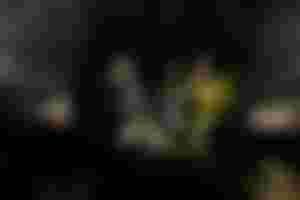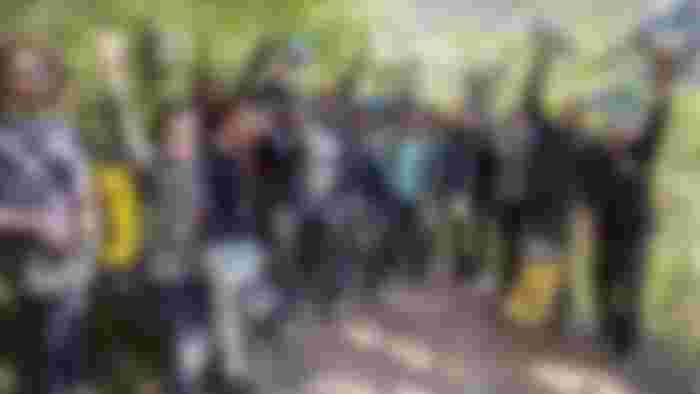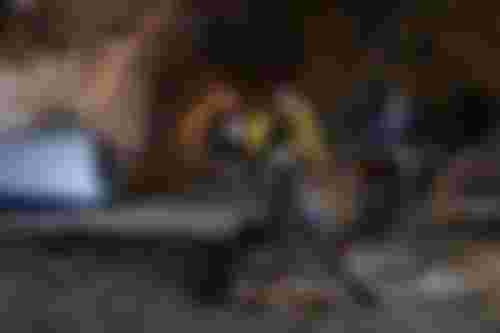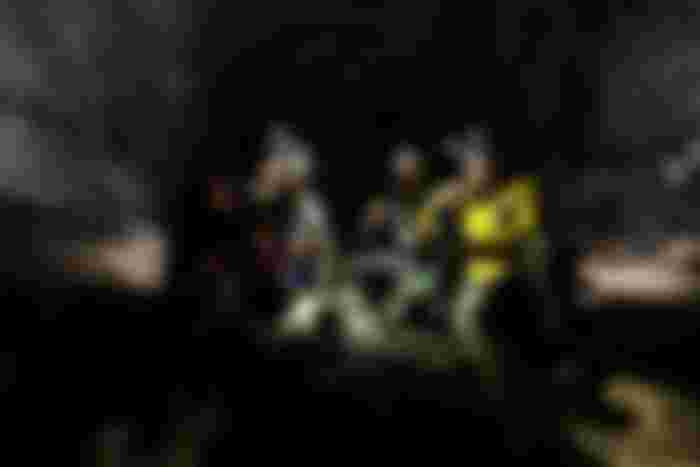In my spare time I love to go caving: from an often small and insignificant hole in the ground you discover a new world and realize that all this time you have been walking on an invisible land. Some caves are cramped, some beautiful with structures and colors, some are muddy and some are giant cathedrals underground. I once spend a night in a cave as well with a group of cavers (don't worry it was voluntary, there is not some sort of horror story coming now) and what I still remember is the utter lack of context. When lying on my sleeping mat I could not for the life of me figure out which side of my body was the right hand side and which the left hand side. In the pitch black we humans loose all sense of direction, space and time. This is even more interesting when you realize that humans since their beginning as a species have spend considerable time living in caves.

This is me and my caving group spending the night in a cave, the lights of course were off when we slept, to save batteries.
The Research
All these mysteries that caves are surrounded with made a group of French investigators curious. This was the start of the Deep Time experiment. What would happen if you would put a group of people in a cave, sealed off from the outside world and you give them no way to check the time? No watches, no phones and most importantly no sunlight. Would a natural body clock appear? Would people's perception of time change? Would people go mad? Would there be an ancient system inside our DNA taken over from our cave dwelling ancestors that would kick in? Only time would tell...

For 40 days and 40 nights, the 15 participants of this experiment would be inside a cave in France. They would sleep in tents, eat together, and generate their own electricity on a push bike.

It meant that the participants had no idea how long they had slept, been awake, or how much time in the cave had passed since they had arrived.
The Outcome
Interestingly enough the opposite of what the researchers had expected happened. The researchers assumed that the group would together find a new rhythm inside the cave and stick to that as a group. The reality however, was that each individual assumed it's own time schedule. Meaning that some people were waking up to start their day, while others were up for hours and were cooking dinner.
Another interesting outcome was that each individual reported the length of their days not to be the 24hrs on the outside world, but instead switched to a cycle of 32 hours in which they did everything they would usually do on the surface. When asked how many days they thought had passed at the end of the 40 day experiment, most participants believed to be on day 29. All of the participants natural body clocks had gone completely out of whack and many felt completely detached and even unnerved as this happened.

Perhaps this research gives us more questions then answers: is there even such a thing as a body clock? Or is that just dependent on your environment? How can people adapt such wildly different body clocks when in similar circumstances? What does it do to us to lose a sense of time? And what did it do to our cave dwelling ancestors?
I hope this research provoked some questions for you as well, I have found it fascinating to read about and I hope you have too!




I think it's light - sunlight specifically - that sets that body clock. And when inside a cave where they only live in darkness, they really lose sense of time.